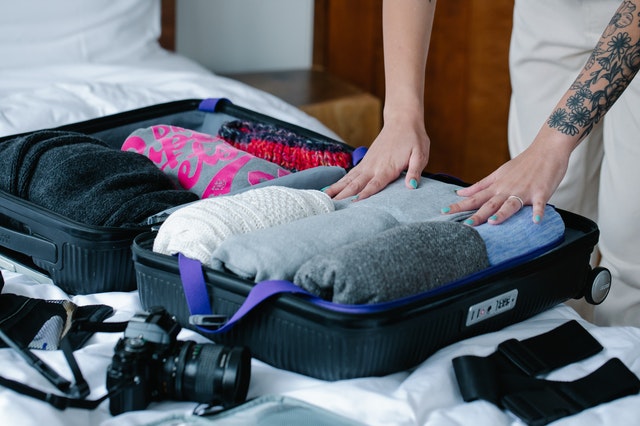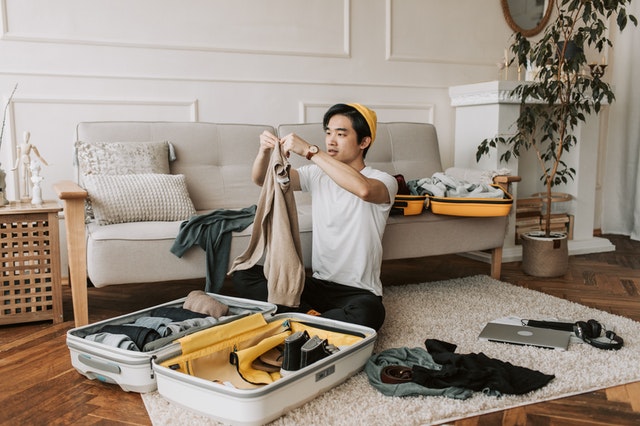
by pankaj | Sep 20, 2022 | City/State Tour, Destinations, Family Trip, Friends Trip, national, Travel Tips
Everyone loves Diwali. The main focus is getting together with friends and family and enjoying the holiday. However, the festival of lights is combined with a weekend this year, making it the ideal justification for a trip abroad. Check out the following list if you’re interested in traveling abroad over the Diwali weekend. Additionally, it offers you a chance to see how different nations celebrate Diwali.
List of 5 Best International Destinations To Visit On Diwali Weekend
This year, a long weekend follows Diwali. The best action is to take advantage of this gap and travel abroad for a brief yet rejuvenating vacation. The top foreign locations to visit over the Diwali holidays are listed below.
- Dubai
The stunning city of the Middle East, Dubai, is only a short, four-hour flight away. Dubai is the #1 international destination on our list for the Diwali weekend, thanks to its beautiful malls, amusement parks, souks, and stunning beaches. Dubai is perfect for a family holiday since it will stop at nothing to keep you interested and captivated. Due to the sizeable Indian population in Dubai, you might also have the opportunity to enjoy spectacular Diwali decorations and fireworks at various locations throughout the city.
Main Attractions: Burj Khalifa, Jumeirah beach, The Dubai Mall, Palm Islands, gold and spice souks, desert safari.
2. Singapore
Another apparent option when considering travel to a foreign country over the Diwali weekend in Singapore. In addition to the city’s main tourist attractions, Little India has Diwali decorations, lights, and fireworks. Make your trip memorable by indulging in Orchard Road’s Diwali shopping.
Main Attractions: Sentosa, Singapore Zoo, Universal Studio, Marina Bay Sands, and Gardens by the Bay
3. Bangkok
Bangkok attracts tourists from around the world all year long. Bangkok is undoubtedly one of the better possibilities for international travel for Diwali weekend. This city has it all for a fun-filled vacation: swanky malls, multi-cuisine restaurants, historic temples and pagodas, stunning beaches, and several amusement parks.
Main Attractions: Bangkok Zoo and Safari World, Tiger Temple, Reclining Buddha temple, MBK Mall, and Floating market
4. Malaysia
Malaysia is one of the most searched locations to visit over the Diwali weekend due to its stunning islands, expansive beaches, and opulent resorts. Make your Diwali exciting and fun-filled by making plans for Langkawi and Kuala Lumpur. You can unwind at the beaches, engage in adventure activities, hike through the rainforest, visit a casino, or climb to the top of the Petronas Twin Towers for a breathtaking perspective of the city.
Main Attractions: Twin Towers, Cameron Highlands, Genting Highlands, and Batu Caves
5. Hong Kong
Hong Kong is another place to go on vacation that might be used as a weekend escape for Diwali. Hong Kong is a popular location for all ardent visitors because of its cruises, theme parks, museums, and shopping malls, especially for those organizing a family holiday abroad over the Diwali weekend. Additionally, since Diwali is the finest time to visit Hong Kong, you may anticipate most of everything the city offers. Additionally, you might include a day excursion to Macau and take in the ethereal splendor of the picturesque island.
Main Attractions: Disneyland, Ocean Park, Victoria Peak, Star Cruise, and Lantau Island.
Final Words
Traveling abroad over the Diwali holiday weekend is a great idea to spice up your celebrations. So, start packing your bags!

by pankaj | Sep 19, 2022 | Travel Tips
Traveling mistakes are very common. These mistakes turn your mesmerizing vacation into a nightmare. You need to make proper planning, whether you are traveling within the country or abroad. Although travelers always pre-plan their journey no one knows what holds throughout the vacation. Keeping this in mind, we have prepared five common mistakes to avoid by travelers during planning their vacation.
- Overpacking
Overpacking is the most common mistake done by everyone. One should always travel light. You can make a list of items you need and check the weather forecast. Also, if you stick to the particular list, you will have much space in the bag for the shopped items from that place.
- Not Buying Travel Packages
Travelers should include travel packages in their tours. They offer a lot of benefits and services like accommodations, hotel transportation, and destination tours. Travel packages also offer travelers security in case of delays and cancellations happen along the way. The service provider can rearrange transportation or pay the clients if unwanted things happen.
- Packed Itinerary
Another mistake made by travelers is they wanted to explore everything in a limited time. But it is not practical to visit much in a limited time. You may not enjoy all the destinations to the fullest extent. So, rather create a flexible itinerary and list random experiences and activities of that particular place.
- Eat food in famous restaurants
Having breakfast, lunch, or dinner in any famous restaurant is not only expensive, but it will also be crowded. So, instead of having food in expensive restaurants, eating local cuisine in a local restaurant is always a better idea. It will also save you money.
- Not carrying all your required documents
It can prove to be the biggest mistake by travelers. If you are traveling to any international destination, it is a must to carry all the required documents with you. Also, cross-check if your passport is valid in the country. Make sure to check all the requirements before you visit another country.

by pankaj | Sep 16, 2022 | Travel Tips
Want to have a traveling break, but thinking that travel can be expensive may cancel your plan? But if you plan your trip according to our guide you will definitely save a lot of money while traveling. A planned trip saves the amount of money than an unplanned trip. So, here we are with some easy tips on how you can save money while traveling.
- Opt for Off-Season
Traveling in the off-season is our number one tip. If you travel in the high season, the price of everything like accommodation, tours, and even food will be higher. So, to save money you can prefer going in the off-season where you will find much difference in the price. You will find cheap hotels, ferry discounts, and half-price tours if you opt for the off-season.
- Set your Intention
The next thing is to set your intention. It is very important to have a clear idea of where you want to go and what you want to do in saving money while traveling. To set your intention you can take out your dairy and pen and make notes of it.
- Plan your Travel Budget
So, when you are done with setting your travel intention the next step is to plan your budget. Check out how much your traveling tour will cost you. Here you can consider local transportation, accommodation, food and drink, and leisure expenses.
After making a rough idea of your budget, check your monthly budget and see how long it will take to save up some money. If you find that you can not save money in this section do not worry. Other tips below will help you.
- Eat like the locals and trip like the locals
The next thing to remember is wherever you go, try to eat like how the locals eat and travel like how the locals travel. Eating in the local restaurants, shopping at local restaurants, roaming around in local transportation saves you lots of money, and also you will get a much more authentic experience.
- Stay where Breakfast is Included
Kill two birds with one stone by staying in places where breakfast is included in the staying price. It is also fine if breakfast is not included. In such cases, you can go to local restaurants and eat items like bread, and fruit to save a lot of your money.

by pankaj | Sep 15, 2022 | Travel Tips
Are you traveling on lengthy flights? You may feel bored, uncomfortable, and exhausted whether you are taking a seven-hour tour to Europe or undertaking a 19-hour journey of the world’s longest flight.
The problems of long-haul travel can range in harshness from annoying seatmates to downright dangerous. An unclear planned journey can ruin your day. Fortunately, we have listed ten easy tips to bear a long flight. Read on!
- Book your Tickets Early
Without waiting and hoping for the price drop, it is better to book your tickets at the earliest. As the earlier you book the tickets, the better your chances of picking your favorite seat.
- Book Back Seat
If your favorite seat is no more available, book the back seat. However, it will be noisier, but if everyone prefers the front seat, you have a far better possibility of ending up with an empty seat or two beside you.
Furthermore, keep an eye on the seat map before you fly if there are any empty seats you can get at the last minute.
- Get Creative
So, if your flight is long hours, you get to use it as an opportunity. You can carry the notebook with you, a sketch pad, or anything else you are interested in.
- Stay Hygienic
Stay hygienic is important for everyone. So, try to carry your own toiletries and ensure to brush up your teeth, put on some deodorant, and even you can change your clothes to be hygienic.
- Bring your Best Conversation
Long flights can be very boring. So, never hesitate to start a conversation with your fellow seatmate. If you are likely to be seated next to an interesting and friendly fellow, strike up a conversation.
- Walk to Keep the Blood Flowing
Passengers who travel in pressurized cabins may have symptoms such as weariness, headaches, swelling limbs, and dehydration over time as a result of decreasing blood oxygen levels. The most ideal activity is to Stretch. To increase blood flow, walk up. You can also perform some quiet exercises in your seat, such as rolling your shoulders and turning your ankles.
- Wear the Most Comfortable Outfit
When it comes to long-haul flights, pick a “comfy-chic” dress code of neutral, loose-fitting layers you feel comfortable in. Experts also suggest wearing compression socks, which decrease swelling and reduce the risk of blood clots.
- De-stress Before you Arrive
Before you go on a long journey, it is necessary to have a nice breakfast, go to the gym, or for a walk. It is important for every traveler to feel relaxed.
- Don’t Overpack the Carry-ons
A long-haul journey will demand more of you than a short-haul flight would, but that doesn’t mean it’s too overpack. Keep your essentials in your personal item so you can always access them.
- Bring your Own Pillow
The basic carry-on item for long-distance passengers is a small pillow. Travel pillows are available almost everywhere at airports, and appearing a little foolish is a minor price to pay to avoid damaging your neck.

by pankaj | Apr 29, 2022 | Destinations, international, International Destinations, Tips, Travel Tips, vacations
Learn how to assess security concerns when traveling to more “exotic” destinations and keep safe.
Some travelers maintain that tourist travel to certain countries is unsafe and to be avoided. At the same time, other travelers insist that such travel is safe.
Who, then, can a potential traveler believe? Every traveler is different and has varying travel interests and tolerance levels for risk.
Even within the same country, security concerns may vary widely as well. Before considering travel abroad, it is important to carefully evaluate possible security concerns for a particular destination, while keeping in mind your travel style and willingness to adapt to local ways.
Official Travel Warnings
Before considering travel to a particular country or location, it is advisable to check a variety of sources. This way, the potential traveler can compare the different security concerns that are expressed about a specific country.
A major reliable source of information about the security and safety situations of countries around the world are the dedicated travel sections of government-run foreign affairs offices like the United States’ Department of State, the United Kingdom’s Foreign Office, and Australia’s Department of Foreign Affairs and Trade. All three offices offer frequently-updated country specific information, travel warnings, and travel advice on their respective websites.
As government bureaus that watch out for their citizens’ safety and interests, the Department of State, the Foreign Office, and the Department of Foreign Affairs and Trade have access to a wide range of sources in the creation of these documents. However, some critics have expressed concern that certain travel warnings may be politically motivated.
Information From Other Travelers
Other travelers can be a great source of information. They may have recently gone exactly where you are thinking of going or they may have some first-hand information that is not readily available in guidebooks. On the other hand, they may have picked up unreasonable or unwarranted opinions or prejudices. The rule of thumb when seeking the advice of other travelers is to gain as much information as possible, but to take it with a grain of salt.
Online travel forums are an easy way to find other travelers who may be eager to share their travel experiences with you. Politely asking curious questions is a good way to get the conversation started. Alternatively, you may know someone in your extended circle of contacts who has gone to the place you are researching. You may ask them to coffee so that you can pick their brains.
Mode of Travel
How one travels can impact one’s level of safety and is an important consideration to keep in mind. For example, in a country where Westerners have been known to be targets, Western tourists traveling in a large group may constitute a security concern in certain areas. Traveling as a small group may attract less attention, but as a smaller group – or even those who travel individually – tend to be more approachable, they may be more susceptible to harassment or worse from unsavory elements of the local population.
Whether traveling as a large group, a small group, or individually, it is important to anticipate and balance current security concerns in the city and country you wish to travel to with the mode of travel you choose. If in doubt, contact your country’s local embassy or consular section for advice and information about the latest conditions.
Fitting in Promotes Safety
In general, travelers who try to respect the local customs through their dress, actions, and speech have a greater chance of ensuring their personal safety. As an illustrative example, a gay couple may openly kiss on the streets of Berlin, Germany; however, that couple would risk death for the same behavior on the streets of Riyadh, Saudi Arabia. A woman who dresses modestly and a tourist who speaks the local language are appreciated in many countries, or at least it may help the traveler to draw less attention to him or himself.
In certain cases a traveler will be immediately recognizable as a foreigner or tourist, such as black people in Russia or white ones in India, or if you are unable to speak the local language, which may draw unwanted attention, but attempting to emulate local dress, actions, and speech may make a positive difference in how the traveler is perceived or treated. So, read a book on the country’s customs. Take a language course. Put together a modest wardrobe.
Keeping Safe
To be safe, it is important to assess the conditions and safety concerns in the city and country you are considering travel to. Get as much information and evaluate it as you can, you need to carefully look at it, you can make an informed travel decision and have a good holiday while avoiding a potential tragedy.

by pankaj | Apr 8, 2022 | Travel Tips
Don’t be a target for thieves.
Don’t bring a purse. Purses are a distraction for the carrier and a target for pick-pockets. Instead, use a money belt secured under clothing for cash, passports, IDs, and credit cards, and carry a small pouch pack attached to your hip or shoulder strap for personal day-to-day items like small amounts of medication, reading glasses, and lip balm, etc. Men, leave your wallets at home; take what is needed and keep it in a money belt under your clothing. Thieves look for an easy mark and will focus on the tourist with a bulging wallet flopping around a back pocket or a lady swinging a purse around. Simply eliminate the issue.
Money
Carry at least $80 to 100 in small bills, ones, and fives for tips, water, etc.
Believe it or not, money changing can be the cheapest right at the airport, so scout out the currency exchanges in the terminal before you head out. Plus, crazy as it seems, the hotels are frequently out of money! So get it while you can.
Bring no expensive jewelry. Instead, take cheap but attractive pieces that can afford to be lost.
Pack lightly
Plan to hand wash some clothing halfway during the trip. Choose clothing articles that are lightweight and quick drying. Plan the entire wardrobe before packing everything so that all pieces go with everything else. Have a central theme to the wardrobe using a neutral color: black, brown, navy, or grey. Choose one or two accessories that spice up an outfit for evenings out, like a colorful, glittery scarf or a metallic belt with some “bling.” Finally, lay everything out on a bed for easy coordination.
Wear the bulkiest items on the plane: long pants, walking shoes with socks, jackets, and long sleeves. This strategy keeps a traveler comfortable during the trip and saves space in the luggage for lighter items.
All those who have scrimped and saved, planned for years, and finally booked that dream trip only to have luggage lost on the first day – live and learn. Couples traveling together can work as a team.
Take three pieces of luggage.
1. Take one personal item bag, not a purse, but used as a purse just for the flight, something like a beach bag or backpack. Later, this can be used to go to the beach or carry water bottles. In addition, I hold travel documents, books, games, glasses, pair of socks, a toothbrush, and a sleep pillow – just items to help make the airline flight more enjoyable.
2. Pack 3-4 days of important clothing in a regulation-size carry-on luggage piece. Most airlines have a 22-inch limit, and some might have weight caps too. One should think: These clothes would be sufficient for the trip if the unthinkable happens and a checked bag gets lost. Also, the camera and extra copies of important paperwork like passport, ID, credit/debit card, medications, and copy of travel insurance should be packed here and the bag stored in the airplane overhead bin.
A good traveler is an efficient packer but is prepared for all contingencies. Many countries have different cultural and religious traditions than the traveler’s home, so stores can be closed at unexpected times and days. Pack these 3-ounce portions of anti-biotics, Pepto-Bismol, Zicam, or other cold shortening otc product, hand sanitizer, headache pain remedy, bandages, sunscreen, and a packet of laundry soap or extra shampoo for hand washing clothes in the carry-on bag.
3. Check the third bag. It contains all the less critical clothing items and accessories. For example, it might contain dress clothes and shoes, bulky items, and pieces only worn a few times for special occasions.
Bon Voyage!








